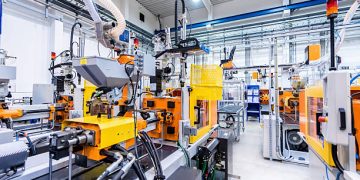HCM CITY — Industrial production in Ho Chi Minh City experienced a robust increase in the first ten months of 2024, driven by supportive government policies and incentives, according to the city’s Department of Industry and Trade.
The production index for four key industries—machinery, electronics and information technology, pharmaceuticals and rubber and plastics, and food processing—grew by 4.7% compared to the same period last year.
Specific sectors showed significant growth:
Wood processing and products from wood, bamboo, and rattan surged by 35.6%.
Rubber and plastic production rose by 30%.
Electronics, computers, and optical products grew by 22.5%.
Chemicals and chemical products saw a 17.7% increase.
Furniture production, including beds, wardrobes, tables, and chairs, climbed by 16%.
Non-metallic mineral products rose by 15.7%.
The consumption index for processing and manufacturing industries also grew, recording a 9.8% year-on-year increase.
Nguyễn Thị Kim Ngọc, Deputy Director of the Department of Industry and Trade, stated that the city has implemented support policies to enhance competitiveness in key industries, including interest rate support loans for sectors such as mechanical automation, pharmaceuticals, rubber, plastics, food processing, electronics, and textiles.
The city has actively disseminated policy information to ensure businesses can access various capital resources. Additionally, seminars and forums have been organized to educate businesses about emerging trends, fostering an environment that attracts investment and positions the city on the regional and global industrial map.
Deputy Chairman of the HCM City People’s Committee Võ Văn Hoan highlighted the importance of creating a favorable environment for investment and production. The city aims to improve its position in the industrial sector while addressing challenges such as the low localization rate and increasing demand for domestic supply by multinational corporations.
New Policies to Support Industrial and Environmental Growth
Efforts to integrate green and digital transformation into industrial policy are also underway. VCCI Deputy General Secretary Đậu Anh Tuấn noted that legal frameworks are being developed for emerging fields such as artificial intelligence (AI), semiconductor microchips, and digital technologies.
In addition, the introduction of the Extended Producer Responsibility (EPR) regulation marks a significant step toward promoting a circular economy. The regulation, designed to enhance recycling and resource circulation, aligns with the government’s zero-emissions goals and is expected to drive sustainable production processes in its first year of implementation.















